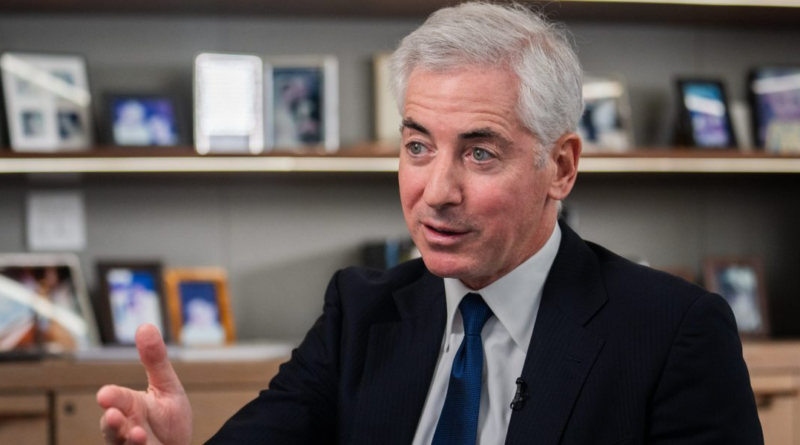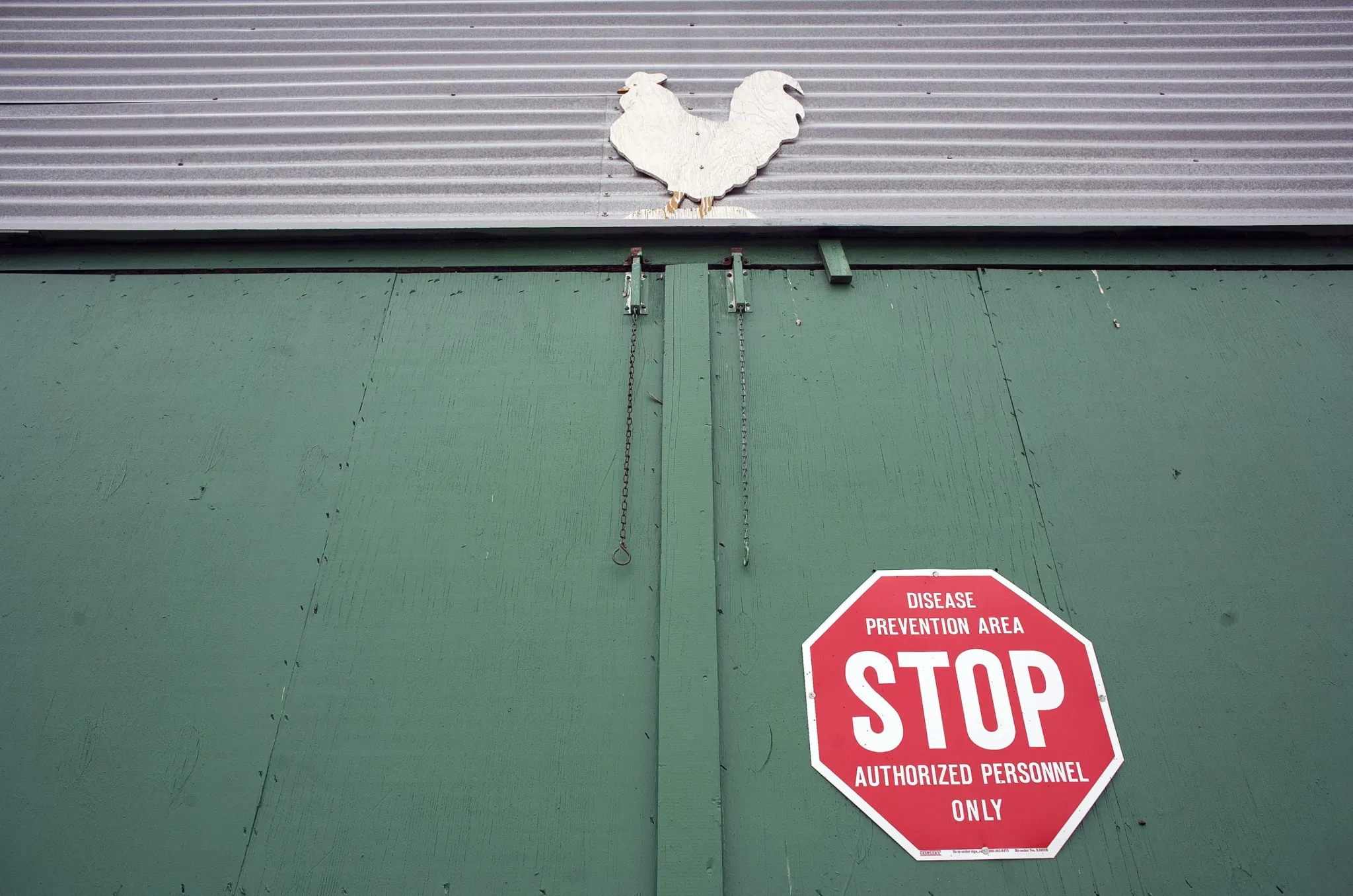Bill Ackman 'just fixing things' with moves against university leaders and diversity programs: 'That’s what I do'
Bill Ackman wants you to know this: He’s just getting started, and he doesn’t care that he’s making adversaries in the media or on the political left.
His months of haranguing Harvard University president Claudine Gay ended in her resignation. Now the billionaire hedge-fund manager said he intends to use his money and influence wherever he chooses.
Item No. 1: Higher education. Item No. 2: the media. Item No. 3: free speech. Items No. 4, 5, 6: stay tuned.
“That’s what I do: I fix things,” Ackman said in an interview Wednesday. “This is just fixing things.”
Ackman, 57, has opined on thorny topics big and small for years. But in railing against antisemitism on campus and the way diversity programs are run, he has touched a nerve.
His persistent campaign against Gay — the first Black president in Harvard’s 387-year history — has prompted the ire of critics such as Rev. Al Sharpton. As Ackman widened the scope of his invective from academia to the media in the past week, lampooning and more criticism followed. The Financial Times offered a quiz inviting readers to guess the source of several quotes: Bill Ackman or American Psycho?
But Ackman has also won praise from conservative activists, members of the Jewish community and even Elon Musk. And that’s emboldened him to push ahead with the same pugnacity that defined his Wall Street career.
For now, details around the next stage of his plan are still coming into focus. On Friday, Ackman told CNBC it will be akin to a think tank, but more of a “think-and-do tank.”
Over decades of investing, Ackman fashioned a place for himself as an arbiter of how public companies should behave. He’s starting to employ similar tactics to dictate terms far beyond the business world.
After Business Insider reported on missing quotation marks in his wife Neri Oxman’s Ph.D dissertation for the Massachusetts Institute of Technology, Ackman turned his contempt toward the news outlet’s parent Axel Springer SE. (He also name-checked a Bloomberg News reporter on X for calling his adult children for this story. They did not respond.)
On a Facebook page for his 1988 Harvard graduating class, peers have questioned Ackman’s motives for months and expressed disdain, according to posts viewed by Bloomberg.
Yet Ackman, true to form, doesn’t care — because he’s certain he’s right.
“There’s a line of people who want to talk to me and take a picture,” he said of a recent wedding he attended with other Harvard alumni. “They thank me: ‘Bill, thanks for standing up. Thanks for being such an important voice on important topics where no one is willing to speak the truth.’”
Highest Bidder
It’s clear that Ackman is relishing his return to the spotlight.
But behind the public posturing, his new quest has been shaped by a bout of acute personal and professional upheaval. Divorce, a new marriage, the death of his father and significant change at the hedge fund he founded, Pershing Square Capital Management, all compressed into a roughly five-year stretch.
“I’ve had an incredible recent history,” Ackman said. “I was in a pretty bad place.”
Ackman amassed a $2.5 billion fortune using a scorched-earth approach that resulted in both big wins and shattering losses for Pershing Square, where he’s chief executive.
In US higher education, he spotted a new, potentially easier target. He can apply some of the same showmanship of short selling, without the same risks. Gay’s resignation from Harvard showed how swiftly a pressure campaign like Ackman’s can escalate.
Some members of the Harvard community say his punditry represents a dark turn: a direct threat to their independence, from a ringleader willing to redefine the relationship between donors and higher education. Ackman has given about $50 million to Harvard, mostly through his Pershing Square Foundation.
“If a university accommodates the wishes and directives of all of its most generous donors, you actually don’t have a university worthy of generous donations,” said Richard Chait, professor emeritus at the Harvard Graduate School of Education. “You have a university that sells its mission, sells its priorities to the highest bidder.”
Ackman said that unlike some other big donors, he never threatened to stop giving.
Inflection Point
People who know Ackman, even his friends, agree that he loves coming off as an expert. He has a reputation for spotting inflection points, and seeing himself as the catalyst in moments of big change.
He also has a penchant for offering advice, including in personal updates for his Harvard College Class Report — or “red book” as it’s known — published every five years ahead of reunion.
“My best advice on dealing with challenges is to make sure that you make a little progress each day,” he wrote in the 2018 edition. His guidance for his middle-aged classmates included focusing on nutrition, exercise (“the more intense the better”) and getting enough sleep.
Ackman has been confronting his own personal inflection point. He and his wife of more than two decades split in 2016 and later divorced. In 2019, he married Oxman, an American-Israeli designer. The death of his father Larry, a powerful real estate developer, followed.
Professionally, things weren’t any easier. He declared defeat in his more than five-year, money-losing campaign against nutrition company Herbalife. He lost $4 billion in a miscalculated bet on Valeant Pharmaceuticals.
Free Time
Ackman’s investing life has become a lot more boring of late.
He swore off big, messy short selling campaigns in 2022, telling investors he’d take a “quieter approach.” Pershing Square’s portfolio includes just 11 companies and rarely changes. Though Ackman remains the fund’s final decision-maker, he deputized a chief investment officer. The structure of his fund, unusual in the hedge fund world, means he doesn’t have to answer to big-money investors as a typical manager would.
Performance-wise, he’s doing much better. Since 2019, Pershing Square posted an annualized gain of about 32%.
All of that amounts to less work travel, less professional angst, and, perhaps, a little extra time to spend posting on X.
Ackman used the platform to weigh in on Kyle Rittenhouse, who was acquitted after he shot and killed two people during racial justice protests in Wisconsin (calling him a “civic-minded patriot”) and on FTX CEO Sam Bankman-Fried before the crypto entrepreneur was found guilty of fraud (Ackman guessed he was “telling the truth”). During last year’s regional banking crisis, Ackman posted speculation that Bank of America Corp. would buy Signature Bank. It didn’t.
That all came before he turned to Harvard leadership.
After allegations of plagiarism appeared in conservative media against Harvard’s president, Ackman amplified the claims to his 1 million followers. He wrote that he’d heard Harvard, in its search for a president, did not consider candidates who fell outside its diversity requirements — a situation Ackman likened to “the McCarthy era Part II.”
Gay’s academic record wasn’t Ackman’s only sticking point: he had been hounding Harvard since a coalition of student groups published a statement blaming Israel for the Hamas attacks on Oct. 7. Gay did not return a request for comment.
Ackman said he reacted so strongly against that letter because it made him think of his father, who before he died had underscored Ackman’s foundation needed to do more to combat antisemitism.
Though Harvard’s governing body initially stood behind Gay after what some considered a tepid response to the student groups’ statement, the plagiarism allegations proved irremediable.
“The thought experiment is: if Bill Ackman didn’t exist — would the same thing have happened?” said Ryan Enos, a political scientist and professor of government at Harvard.
Canny Player
To conservative activists, the billionaire is emerging as a canny force to have in their corner as they look to dismantle what they see as the overreach of a movement promoting racial diversity and inclusion.
Ilya Shapiro, a senior fellow and director of constitutional studies at the Manhattan Institute, said he hadn’t heard of Ackman before the Oct. 7 invasion of Israel. Now he said he views him as a pivotal voice.
“Universities are institutions that will not reform themselves,” he said. “There have to be external pressures and exogenous shocks.”
Others welcome Ackman’s voice, like Archie Gottesman, co-founder of JewBelong, a nonprofit that puts slogans promoting Jewish identity on billboards across the US.
“I don’t think being a coward is attractive,” she said. “I wish that more people would stand up as proud Jews and say what they’re going to say.”
On the political left, Ackman’s burgeoning influence raised alarm. Sharpton, who’s no stranger to controversy, led protesters outside Pershing Square’s Manhattan offices after Gay’s resignation. The group hoisted signs, shouted through a bullhorn and chanted “no justice, no peace.”
“I feel disappointed that they targeted her,” said Gwen Carr, an activist who attended the protest. “It’s disgraceful.”
Ackman was absent, on vacation with Oxman in the Dominican Republic.
Plagiarism Fight
It was during that trip that his scrape with Business Insider began.
The outlet investigated Oxman’s academic work and wrote that she had “plagiarized multiple paragraphs” in her Ph.D dissertation for MIT, noting how Ackman had promoted plagiarism allegations against Gay.
Oxman, a former MIT professor, responded and said she had “omitted quotation marks for certain work” in her 330-page thesis, but in each case cited authors appropriately.
Business Insider’s subsequent stories characterizing Oxman’s apology as an admission of plagiarism sent Ackman on a new crusade. He accused the outlet of sensationalizing what he called a few clerical errors. He took his objections not just to Axel Springer but also to its private equity majority owner KKR & Co., spilling details from his communications to the public.
“Plagiarism is fraud. Fraud is a crime,” Ackman wrote. “Neri has never committed fraud of any kind.”
“I stand by our story and the work that went into it,” Business Insider’s global editor-in-chief Nicholas Carlson wrote in an email to staff. “I know that our process was sound. I know our newsroom’s motivations are truth and accountability.”
Adib Sisani, a spokesman for Axel Springer, told a Puck journalist that “Bill Ackman is completely losing it.”
1988 Thesis
The new front doesn’t mean Ackman is done with Harvard, though. He’s called for members of the university’s governing board who stood behind Gay to step down.
In some ways, his ongoing dust-up with his alma mater harkens back to topics that preoccupied him when he arrived as an undergraduate from Chappaqua, New York: diversity, antisemitism and how selective colleges shape the upper echelons of American society.
Martin Peretz, former publisher of The New Republic, taught Ackman at Harvard and mentored him as he wrote his senior thesis, “Scaling the Ivy Wall.” Ackman homed in on Harvard’s admissions practices, how it excluded qualified Jewish students in the early 20th century, and how similar tactics emerged in its vetting of Asian-American applicants decades later.
“Harvard represents the gateway to elite status and to ‘making it’ in modern day American society,” he wrote.
Decades later, Peretz, 85, remains close to Ackman.
Peretz, a staunch pro-Israel voice and a “father figure” to Ackman, was one of two people who suggested he meet Oxman.
The two men still dine regularly around Central Park South — Ackman manages Peretz’s money, and Peretz was one of his first investors. Peretz says they’ve spoken about six or seven times since the Israel-Hamas war broke out.
“He’s busier than he was, and that’s saying a lot,” Peretz said of his former student in a phone interview.
Not so long ago, Peretz endured his own bitter chapter with Harvard, which he wrote about in his 2023 memoir “The Controversialist.” Student protesters jeered at him when he returned to campus for a 2010 event, shortly after he published a blog post calling Muslim life “cheap.” The group chanted: “Harvard, Harvard, shame on you, honoring a racist fool.”
“The racist fool is, apparently, me,” Peretz wrote. “It’s a sodden coda, one I don’t quite grasp, or believe.”
‘Very Personal’
Ackman made his own recent pilgrimages back to Cambridge. He returned for a screening of a film compiled by the Israeli Defense Forces, showing graphic imagery from the Hamas attacks.
“It was very personal for him,” said Rabbi Hirschy Zarchi, founder and president of Harvard Chabad.
Ackman rose to address the crowd, telling a story about his parents’ decision to let him watch a film about the Holocaust at the age of 10 or 11. He recounted the moment he heard the initial news of rocket attacks in Israel in October, and invoked his relationship to Oxman.
“I just knew, as much as I was feeling this, this would affect her in a profound way,” he said. “It has affected us.”
For some current students, Ackman’s presence on campus — and his opining in general — is frustrating. A recent Harvard Crimson op-ed said Ackman had “weaponized antisemitism as a smokescreen to advance a political agenda,” and excoriated his “bad faith” social media posts.
Samuel Libenson, a junior at Harvard studying social studies and philosophy, echoed that sentiment.
“I would like Bill Ackman to no longer say anything about Harvard,” Libenson said. “There is an impression that smart and successful people have authority to speak about anything,” Libenson added. “But that’s not true.”
Ackman might not be able to help himself.
“I get a certain thrill out of pushing ‘post,’” he said.
— With assistance from Heather Perlberg, Francesca Maglione, and Tom Maloney




